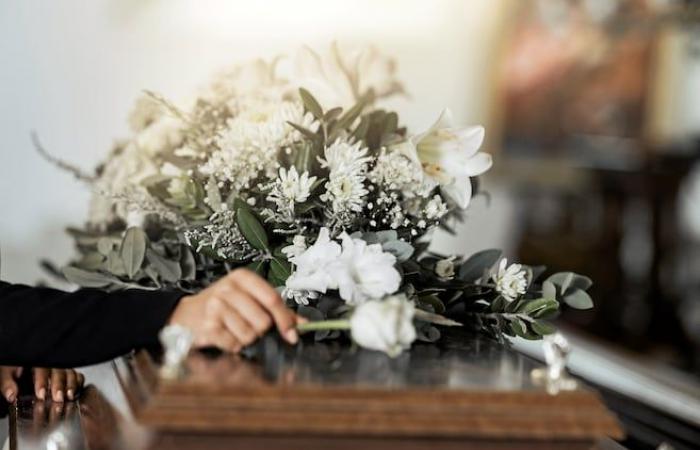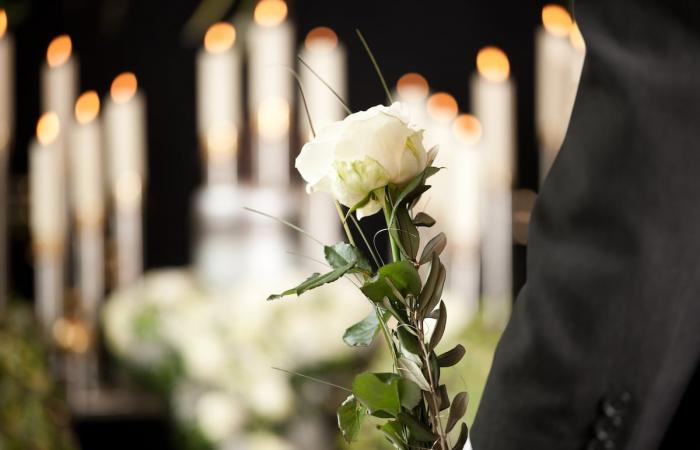Funeral pre-arrangements allow you to protect yourself from inflation by paying your funeral bill at today’s price. Everything is framed by a pre-arrangement contract signed, then sent to the Register of pre-arrangement contracts set up in January 2021.
“It freezes the price until death, which can occur 10, 15 or 20 years later,” summarizes Alain Leclerc, general director of the Federation of Funeral Cooperatives of Quebec, in an interview with The Sun.
The latter, however, wishes to issue a warning. “It’s not a good financial investment. People need to get this out of their minds,” he suggests.
In order to be able to offer this advantage, funeral homes will deposit the amount with a trustee. The money paid will then be placed securely to ensure a return covering at least the level of inflation.
“The return on these sums is generally higher than inflation,” quickly adds the one who gives his voice to 19 funeral cooperatives.
At the time of death, this capital gain falls into the hands of the funeral home rather than the estate.
Hence the interest in placing the sum under the advice of a planner if the intention behind the prearrangements is solely financial, points out Mr. Leclerc.
“In general, you should not make pre-arrangements for financial matters. We have to do them, because we don’t want children to be stuck with this problem,” he says.
This desire to plan one’s last tribute is gaining more and more followers.
“The more we talk about it, the more interest we see emerging. Especially for people who are forward-thinking and who do not want to leave their family or their estate with this administrative burden,” says Annie Saint-Pierre, general director of the Corporation of thanatologists of Quebec.
Better informed consumers and financial advisors who address funerals more in estate planning are also helping to solidify the trend.
The general director of the Corporation of Thanatologists of Quebec, Annie Saint-Pierre. (François Gervais/Archives)
For the moment, one death in three is guaranteed by a prior arrangements contract.
According to Patrice Chavegros, vice-president of sales and marketing at Athos, funeral pre-arrangements are complementary to the will, the incapacity mandate and the life insurance that a consumer may hold.
“They avoid additional expense. Above all, they prevent their loved ones from making difficult choices,” he clarifies.
“From the moment you don’t need to make choices and, above all, assume the costs, it allows you to experience your mourning in a more organized and less burdensome way.”
— Patrice Chavegros, Vice President Sales and Marketing at Athos
If there is no age to start the process, Dominic Fleury, funeral director at La maison Roy et Giguère, notes that most requests come from people aged over 70.
Mr. Fleury observes that many people die without having planned their memorial services. The fear of death remains one of its explanations. (123RF)
The man in his late fifties is surprised every time he receives visits from clients his age who want to plan their funerals.
“You might as well take your money and put it somewhere else, because it’s going to earn you more than the interest on the trust,” he concludes.
Not everything is covered by the prearrangements.
Goods provided by a third party such as obituaries and flowers may be excluded in a funeral arrangements contract.
Many consumers will set aside a sum to cover these expenses. “Everything that is external and that is aimed at loved ones, he leaves the choice to his survivors. This is what makes the prearrangements flexible,” says the Athos spokesperson.
It is good to leave some latitude.
“It is often said that funerals do not belong to the person who has died. They belong to his family,” insists Alain Leclerc, general director of the Federation of Funeral Cooperatives of Quebec.
The latter concludes that the succession must be given latitude to plan the final details of the ceremony, while funeral customs are evolving rapidly.
And everyone’s reality too.
“Sometimes we can say we want the ashes to be scattered at the cottage. But will the chalet still exist in 20 years?
Your loved ones must be warned.
More or less two years pass between the moment a person decides to make their prearrangements and the moment they buy them.
“The mistake people make is they will contact a funeral home. They will go make their prearrangements and come home. And don’t tell anyone about it,” points out Mr. Leclerc.
It is better not to take the steps on the sly in order to avoid surprising those around you. “The pre-arrangement that we are going to buy must suit the family. Often, people are harsher on themselves than on family members,” he notes.
You have to shop around.
From Sept-Îles to Montreal, via Quebec, the prices for pre-funeral arrangements are not the same, admits Annie Saint-Pierre of the Corporation of Thanatologists of Quebec.
She advises “not just looking for a price for a price”, while each company has its own business model and service offering.
Some may spend several thousand dollars planning their funeral. Others have a budget of $2,500, she replies, regarding the difficulty of estimating costs.
“One offer is difficult to compare to another,” she whispers, while noting the importance of shopping around.
You have questions or suggestions for the Consumption section of Soleil? Write to us now at [email protected].







